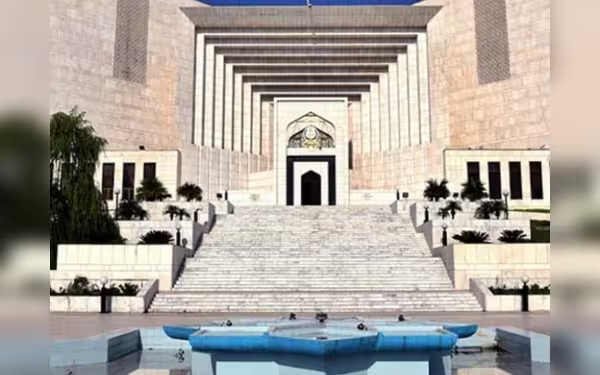Saturday, November 16, 2024 05:43 PM
Supreme Court Ordinance Faces Legal Challenges in Pakistan
- Amendment ordinance alters Supreme Court's committee structure.
- Critics warn of potential judicial bias and integrity issues.
- Legal challenges highlight concerns over judiciary independence.
 Image Credits: tribune.com.pk
Image Credits: tribune.com.pkThe Supreme Court (Practice and Procedure) Amendment Ordinance 2024 faces legal challenges, raising concerns over judicial independence in Pakistan.
The recent introduction of the "Supreme Court (Practice and Procedure) Amendment Ordinance 2024" has stirred significant debate across Pakistan. This ordinance, which alters the structure of a three-judge committee, has been met with legal challenges in the apex court. The government has defended the ordinance, asserting that it was enacted to "serve the public interest." However, critics argue that such changes could undermine the independence of the judiciary.
The amendment ordinance aims to modify how cases are handled within the Supreme Court, particularly focusing on the composition of the committee that reviews important legal matters. By changing the makeup of this committee, the government claims it will enhance efficiency and ensure that justice is delivered more swiftly. Yet, many legal experts and opposition leaders have raised concerns about the potential implications of this move. They fear that altering the committee's structure could lead to biased decisions and compromise the integrity of the judicial process.
Legal challenges to the ordinance have already been filed, with petitioners arguing that the changes violate the principles of justice and fairness. They contend that the independence of the judiciary is paramount and should not be influenced by governmental changes. The Supreme Court is now tasked with reviewing these challenges, and its decision could have far-reaching consequences for the legal landscape in Pakistan.
As the situation unfolds, it is crucial for citizens to stay informed about the developments surrounding this ordinance. The balance of power between the government and the judiciary is a cornerstone of democracy, and any shifts in this balance warrant careful scrutiny. The outcome of this legal battle will not only affect the judiciary but also the public's trust in the legal system. In a country where the rule of law is essential for progress, ensuring that the judiciary remains independent and fair is vital for the future of Pakistan.













